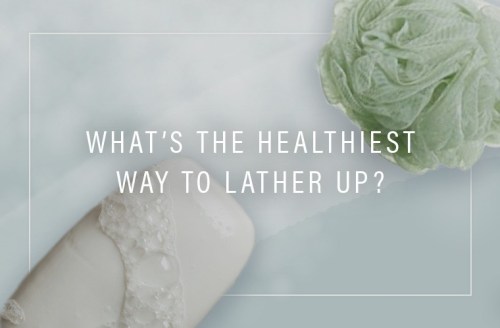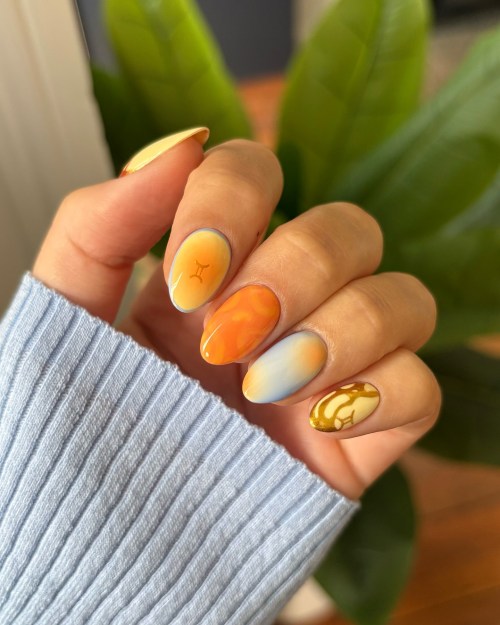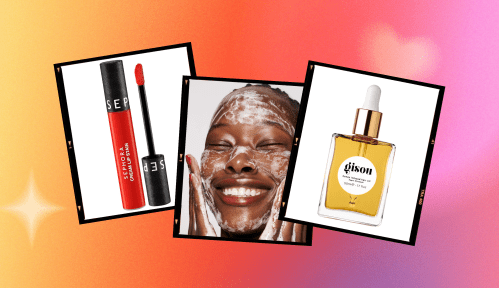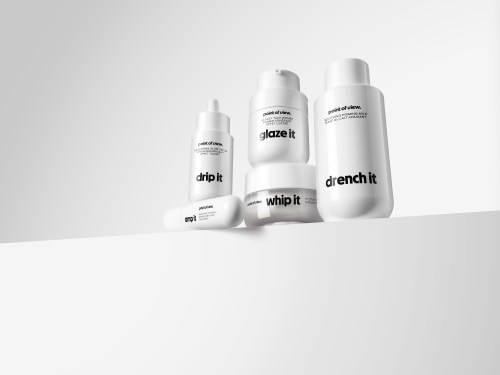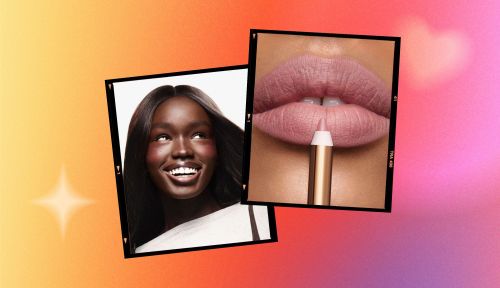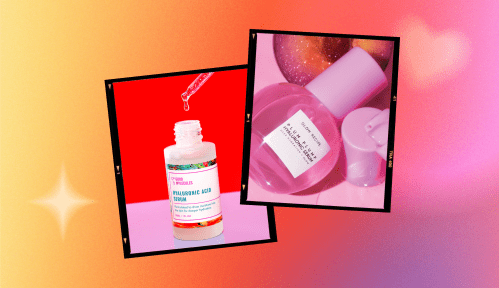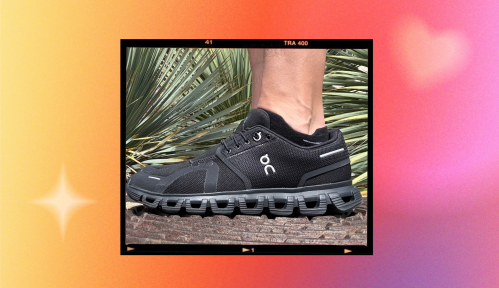Our editors independently select these products. Making a purchase through our links may earn Well+Good a commission
You step in the shower after a hardcore sweat sesh (either at the gym or, you know, just leaving the house in August), and at the end of your 10 minutes of lathering/rinsing/repeating, you want your skin to feel as clean and smooth as possible. So what do you reach for: Your trusty old bar of soap, or a bottle of body wash?
Ask anyone and you’ll probably get a strong opinion on the matter. For some people, lathering up might seem as old-school as watching TV via a rabbit-ear antenna, while for others the sight of a bubble-tastic loofah could give them a rash just looking at it. And don’t even get people started on which gives you a deeper clean (or is more likely to be a bacteria breeding ground).
To settle the debate once and for all, we asked experts to weigh in on this epic bath-time battle. Spoiler alert: There are some major differences between the two cleansing options.
Here’s what you need to know about soap bars versus body wash—and lathering up in the healthiest way possible.
To get the grime off
In terms of just getting clean, it’s a wash (sorry, had to)—bar soap is just as effective as body wash in ridding your skin of any dirt, oil, and bacteria that may have built up during your most recent sweat sesh. “If the goal isn’t to exfoliate, then artisanal bar soap made with oils or shea butter and essential oils is all you need to rid your body of bad bacteria and dirt,” says Patryce Kinga Bak, founder of Clean Living Guide.
Verdict: It’s a tie.
To maintain your skin’s natural balance
No matter whether you’re scrubbing or sudsing in the shower, read those labels carefully. With soaps and body washes, you want to “avoid [products] that make claims of containing antibacterial agents like triclosan and triclocarban,” Bak says. (The two ingredients were banned by the FDA last year, and manufacturers have until September to comply.) “Your skin is naturally coated with a layer of good bacteria. Triclosan temporarily sterilizes the skin, leaving you vulnerable to bad bacteria in the environment, while seeping into your blood stream and wreaking havoc on your gut flora.”
Look for natural ingredients on the label like shea butter, essential oils, and olive, coconut, or sesame oils—and steer clear of anything loaded with chemicals or preservatives.
Verdict: It’s all about the quality of the cleanser, not the method.
To exfoliate
In terms of saying “Bye, Bye, Bye” to dead skin cells, Bak says you can take your pick of either a loofah or a bar of soap that’s packed with pulverized walnut shells or other natural scrubbers. “The exfoliant has to be finely ground, otherwise it just scratches the skin without providing much benefit,” she notes.
But if you want to get really serious about sloughing, she says there’s actually a third option worth adding to your shower caddy: “The exfoliation of a sisal brush is like no other! It’s effective and invigorating,” says Bak. Just make sure not to go overboard with your skin scrubbing—it can lead to irritation and razor burn.
Verdict: It’s a tie for second place—with dry brushing at number one.
To get extra hydration
Silky smooth skin starts in the shower. “I find that gentle bar soaps made with natural ingredients are the least drying and don’t strip the skin, but I don’t think it’s fair to expect soaps to moisturize the skin,” says Bak. “Conventional products made with chemicals marketed as moisturizing are designed to pull moisture out from deep beneath the epidermis, ultimately drying and damaging the skin in the long term.” But body wash or a bar of soap alone won’t keep your skin as soft as it can be—so make sure to apply natural oils or water-based lotions after you lather up.
Verdict: For moisturizing, it’s all about your post-cleansing routine.
To keep it sustainable
What’s best for your body is one thing—but what about what’s best for Mother Earth? “Bar soaps are superior to liquid soaps in this department, because they require less packaging and eliminate the need for plastic,” says Bak. “They last longer, and natural bar soaps are made without any chemicals that might be damaging to the environment. Plastic sponges, loofahs, or other body scrubbing tools aren’t a good choice for the environment.”
Verdict: Bar soap.
To avoid bacteria nightmares
You might have heard horror stories about bar soaps and loofahs being bacterial cesspools—but are these rumors actually true? “Loofahs and bar soap can breed bacteria if left in a moist environment, so both should be replaced on a regular basis,” says Amy Perlmutter, MD, of New York Dermatology Group. “If there’s a noticeable accumulation of residue, then it’s time for a replacement—generally it’s recommended to replace monthly.”
If you’re using a loofah, rinse it thoroughly after every use, store it in a dry location, and treat it with a diluted bleach solution every once in a while to prevent the buildup of residue, mold, and bacteria. With bar soap, the best way to avoid transferring any surface bacteria to your skin is to rinse it with water before using and store it in a dry location. And of course: Never share your bar someone else.
The verdict: It’s a tie.
Originally posted August 3, 2017, updated August 17, 2018.
Looking to soften your extra-clean skin? Here are 5 tips for the smoothest post-shower skin you’ll ever experience, and exactly the products you’ll need to get it.
Sign Up for Our Daily Newsletter
Get all the latest in wellness, trends, food, fitness, beauty, and more delivered right to your inbox.
Got it, you've been added to our email list.
